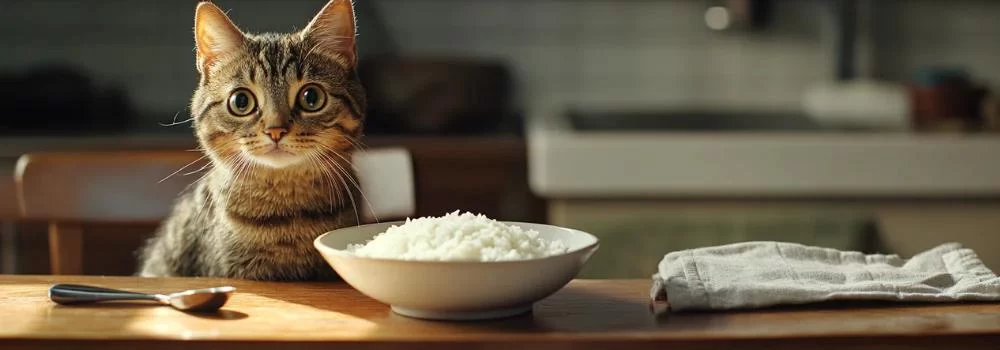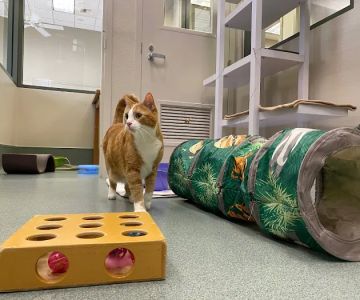Can Cats Eat Rice and Chicken? Exploring the Truth About Your Cat's Diet
As a cat owner, you may have wondered whether it's safe to feed your feline friend rice and chicken. Both foods are staples in many human diets, and you may be tempted to share them with your cat. But is this combination suitable for your pet? In this article, we'll delve into the potential benefits and risks of feeding your cat rice and chicken, providing you with valuable insights into a healthy and safe feline diet.
The Nutritional Benefits of Chicken for Cats
Chicken is a popular protein choice for cats, and for good reason. Cats are obligate carnivores, which means they require animal-based proteins to thrive. Chicken is a high-quality source of protein that provides essential amino acids, vitamins, and minerals that are crucial for your cat's health.
Chicken is rich in taurine, an amino acid that supports heart function, vision, and digestion. This makes it an excellent protein source to include in your cat's diet. It also provides B-vitamins like niacin and B6, which help maintain a healthy metabolism and energy levels.
However, not all types of chicken are safe for cats. When feeding chicken to your cat, ensure that it is cooked thoroughly and free from any seasoning, onions, or garlic, as these ingredients can be toxic to cats. Boiled or baked chicken without added spices is the best option for your feline companion.
The Role of Rice in a Cat's Diet
Rice is a common ingredient found in many commercial cat foods, especially as a filler or carbohydrate source. While cats are obligate carnivores, they can digest some carbohydrates, including rice, in small amounts. Rice can provide your cat with a source of energy, fiber, and some essential nutrients, such as iron and manganese.
For cats with digestive issues, rice can be a good option to help firm up stool or soothe an upset stomach. However, rice should never be the main component of your cat's diet. Cats rely primarily on animal proteins, so rice should only be offered in moderation, as part of a balanced meal.
Can Cats Eat Rice and Chicken Together?
Combining rice and chicken is not only safe for most cats, but it can also offer them a tasty and nutritious meal. The protein from the chicken and the carbohydrates from the rice work together to provide a balanced meal. However, portion size is key. While rice can offer some nutritional benefits, too much rice can lead to an imbalance in your cat's diet. Cats should not rely on rice as a primary food source.
When preparing rice and chicken for your cat, it's important to follow these guidelines:
- Cook the chicken thoroughly and remove any bones.
- Boil or steam the rice without adding any seasonings or oils.
- Serve the rice and chicken in small portions appropriate for your cat's size and weight.
- Ensure that the chicken is boneless and skinless to avoid choking hazards or unhealthy fats.
When Should You Avoid Feeding Rice and Chicken to Your Cat?
While rice and chicken are generally safe for most cats, there are certain situations in which you should avoid feeding them to your pet. If your cat has a history of food allergies or sensitivities, it's important to monitor their reactions closely. Some cats may have trouble digesting rice or may develop an upset stomach from the rice, while others might experience gastrointestinal issues after eating chicken.
Additionally, if your cat has specific health concerns such as kidney disease or diabetes, consult with your veterinarian before introducing any new foods, including rice and chicken, into their diet. Your vet can help you determine whether these foods are suitable for your cat's health condition.
Alternative Safe Foods for Your Cat
If you're looking for other safe and nutritious options to add to your cat's diet, consider the following alternatives to rice and chicken:
- Turkey: Like chicken, turkey is an excellent source of lean protein that supports your cat's overall health.
- Salmon: Rich in omega-3 fatty acids, salmon can promote a shiny coat and healthy skin for your cat.
- Sweet potatoes: This fiber-rich vegetable can be a good source of vitamins and minerals for your cat in small amounts.
- Carrots: These are low in calories and high in fiber, making them a good treat option for cats.
Feeding Your Cat: Dos and Don’ts
When it comes to feeding your cat, it's important to follow a few key principles to ensure they're getting the right nutrition:
- Do: Offer a balanced diet that includes high-quality protein sources such as chicken, turkey, or fish.
- Do: Use rice and other grains sparingly as part of a balanced meal, but never as the main food source.
- Don't: Feed your cat any foods that are toxic to them, such as onions, garlic, chocolate, or grapes.
- Don't: Overfeed your cat, as excessive amounts of any food can lead to obesity or digestive issues.
Feeding your cat the right foods in appropriate amounts will ensure they live a long, healthy, and happy life. Remember, always consult your veterinarian for personalized advice regarding your cat's specific dietary needs.












